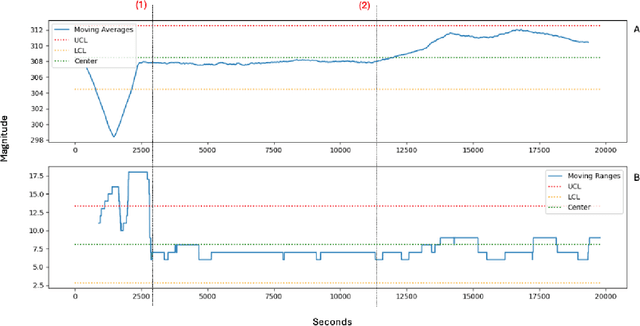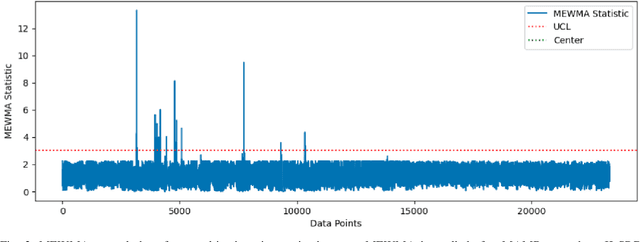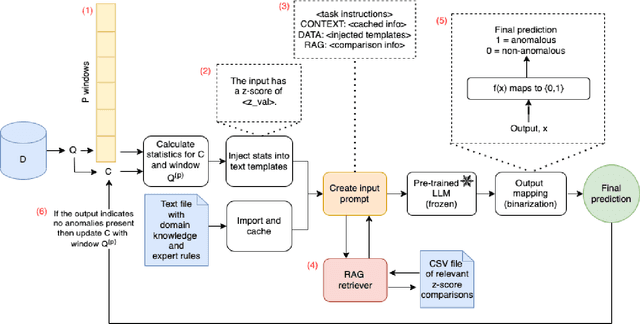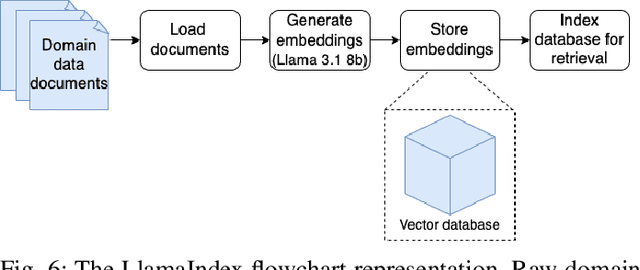Alicia Russell-Gilbert
RAAD-LLM: Adaptive Anomaly Detection Using LLMs and RAG Integration
Mar 04, 2025



Abstract:Anomaly detection in complex industrial environments poses unique challenges, particularly in contexts characterized by data sparsity and evolving operational conditions. Predictive maintenance (PdM) in such settings demands methodologies that are adaptive, transferable, and capable of integrating domain-specific knowledge. In this paper, we present RAAD-LLM, a novel framework for adaptive anomaly detection, leveraging large language models (LLMs) integrated with Retrieval-Augmented Generation (RAG). This approach addresses the aforementioned PdM challenges. By effectively utilizing domain-specific knowledge, RAAD-LLM enhances the detection of anomalies in time series data without requiring fine-tuning on specific datasets. The framework's adaptability mechanism enables it to adjust its understanding of normal operating conditions dynamically, thus increasing detection accuracy. We validate this methodology through a real-world application for a plastics manufacturing plant and the Skoltech Anomaly Benchmark (SKAB). Results show significant improvements over our previous model with an accuracy increase from 70.7 to 89.1 on the real-world dataset. By allowing for the enriching of input series data with semantics, RAAD-LLM incorporates multimodal capabilities that facilitate more collaborative decision-making between the model and plant operators. Overall, our findings support RAAD-LLM's ability to revolutionize anomaly detection methodologies in PdM, potentially leading to a paradigm shift in how anomaly detection is implemented across various industries.
AAD-LLM: Adaptive Anomaly Detection Using Large Language Models
Nov 01, 2024



Abstract:For data-constrained, complex and dynamic industrial environments, there is a critical need for transferable and multimodal methodologies to enhance anomaly detection and therefore, prevent costs associated with system failures. Typically, traditional PdM approaches are not transferable or multimodal. This work examines the use of Large Language Models (LLMs) for anomaly detection in complex and dynamic manufacturing systems. The research aims to improve the transferability of anomaly detection models by leveraging Large Language Models (LLMs) and seeks to validate the enhanced effectiveness of the proposed approach in data-sparse industrial applications. The research also seeks to enable more collaborative decision-making between the model and plant operators by allowing for the enriching of input series data with semantics. Additionally, the research aims to address the issue of concept drift in dynamic industrial settings by integrating an adaptability mechanism. The literature review examines the latest developments in LLM time series tasks alongside associated adaptive anomaly detection methods to establish a robust theoretical framework for the proposed architecture. This paper presents a novel model framework (AAD-LLM) that doesn't require any training or finetuning on the dataset it is applied to and is multimodal. Results suggest that anomaly detection can be converted into a "language" task to deliver effective, context-aware detection in data-constrained industrial applications. This work, therefore, contributes significantly to advancements in anomaly detection methodologies.
 Add to Chrome
Add to Chrome Add to Firefox
Add to Firefox Add to Edge
Add to Edge